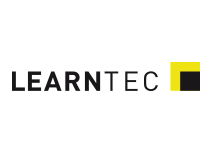Knowledge Transfer is Crucial for Future Viability
Fraunhofer IAO
Karlsruhe/Stuttgart, April 2025 - Prof. Marc Rüger is Director of Strategic Business Development and Head of Business Education and Innovation at the Fraunhofer IAO in Stuttgart. His decades of work at the Fraunhofer Institute are complemented by his involvement as a member of the expert group of the Economy 4.0 initiative. Prof. Rüger will share this wealth of experience from a practical perspective at the LEARNTEC Congress in his presentation “Experiences of an Institute Director on On- and Off-Boarding, Knowledge Transfer and Generation Management” on Thursday, May 8 at 4 pm.
To what extent does your experience as Head of the Institute on the topic of onboarding and offboarding differ from the experiences of company representatives?
Prof. Dr. Marc Rüger: My own experiences relate primarily to the following aspects.
- Culture of shared learning: In our company, onboarding and offboarding processes are not just seen as administrative transitions, but as an integral part of the cultural process. In this context, it is very important that the implicit, culturally anchored knowledge of employees is passed on in informal exchange formats and interdisciplinary projects.
- Systematic integration: We design onboarding processes as integrative activities that not only transfer specialist knowledge but also promote interdisciplinary exchange. New employees are guided towards experienced colleagues in a systematic way to ensure the informal exchange of knowledge and cultural integration.
- Securing knowledge through culture: During offboarding, we secure institutional experience through targeted feedback and knowledge transfer discussions. Mentoring programs such as cross-generational tandems and reverse mentoring establish a continuous cross-generational learning process that retains both professional and cultural knowledge.
The best way to describe the difference to company representatives is as follows:
- Structural differences: Company representatives often tend towards standardized, strictly process-based onboarding and offboarding approaches that focus less on the cultural and cross-generational aspect - if there is a process for onboarding / offboarding in the organization at all.
- Cultural added value: At our institute, the cultural process flows directly into the HR processes - which means that values, communication styles and interdisciplinary collaboration are actively communicated in addition to the mere transfer of knowledge.
To what extent does knowledge transfer play a role in the company you manage? How is it implemented?
Prof. Dr. Marc Rüger: Knowledge transfer is crucial for the performance and future viability of our institute. It ensures that collective knowledge is utilized and continually developed to better meet the future challenges. This allows us to ensure that valuable information, skills and experience are not lost, even when employees leave the organization or retire.
On the other hand, this exchange enables the integration of new knowledge and experience into the organization. This way, employees can learn from the experiences and insights of their colleagues and develop new solutions together.
The implementation in our organization includes the following:
- Formal and informal methods: We combine structured methods such as mentoring programs and onboarding processes with informal exchange formats. These methods are part of a comprehensive cultural process that recognizes cross-generational dialogue and cultural diversity as a source of innovation.
- Actively shaping cultural processes: Workshops and awareness-raising activities promote mutual understanding between the different generations and cultural backgrounds. This is essential to make the implicit knowledge that emerges in daily interaction visible and usable.
- Avoiding knowledge silos: By actively promoting interdisciplinary teams and informal exchange formats (such as Community of Practices or Coffee Roulette), we ensure that knowledge can flow, and cultural barriers can be overcome.
Given today's demographic trends, what can generation management look like?
Prof. Dr. Marc Rüger: I see these aspects in particular:
- Diversity of perspectives: The different experiences, socializations and communication styles of the generations demand conscious management. We rely on the principle of “learning from each other” to encourage mutual understanding and harness synergies.
- Targeted workshops: By holding workshops that highlight the perspectives and needs of all generations, we promote a better understanding of each other and create the basis for sustainable cooperation.
- Diversity as a driver of innovation: The different generations bring different experiences, knowledge and views into the workplace. Having a cultural process that integrates this diversity and sees it as an enrichment leads to creative solutions and strengthens the innovative power of the organization.
How can the next generation benefit from your experience - regardless of the current turbulent economic times?
Prof. Dr. Marc Rüger: I would like to clarify three points:
- Long-term learning culture: the established structures of knowledge transfer and cross-generational learning provide a reliable framework for young talent to continuously develop.
- Reverse mentoring: Young employees benefit immediately from innovative approaches such as reverse mentoring, in which they not only contribute their specialist knowledge, but also learn how to lead and communicate in an interdisciplinary and cross-generational context.
- Foundation of a sustainable cultural process: Our experience shows that cultural change - supported by informal and formal knowledge transfer - is the key to preparing the next generation for future challenges. This not only strengthens innovative power but also ensures that the next generation is well equipped not only professionally, but also culturally.

